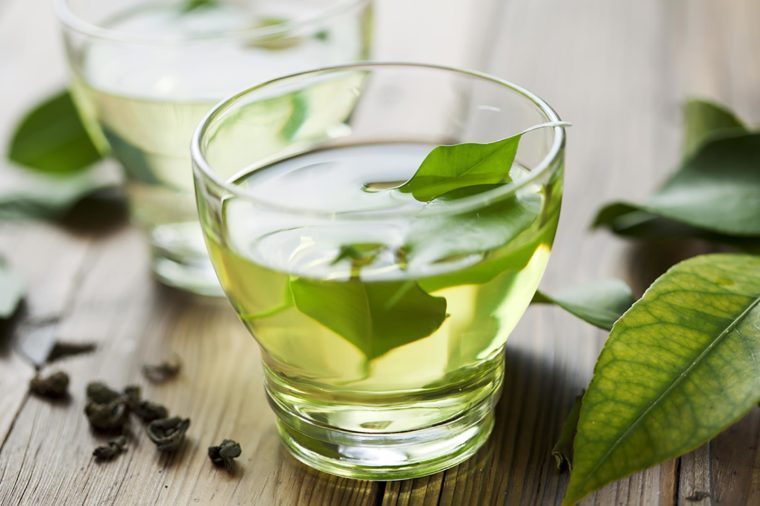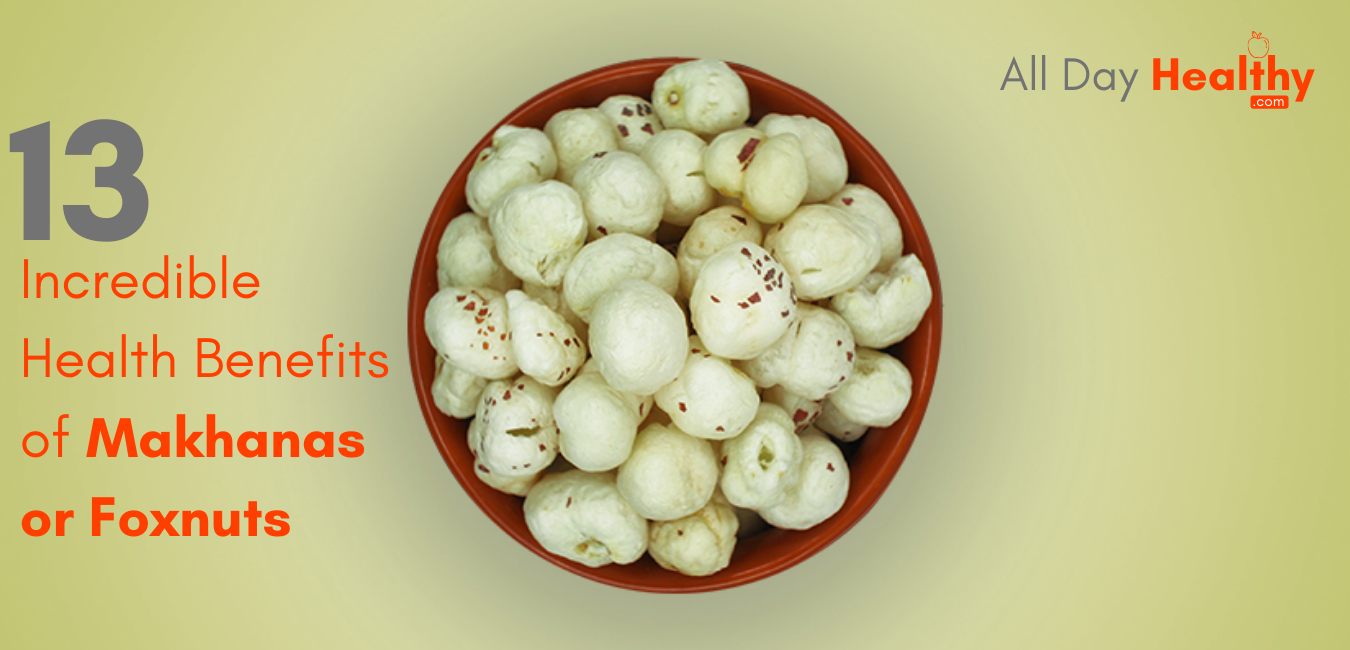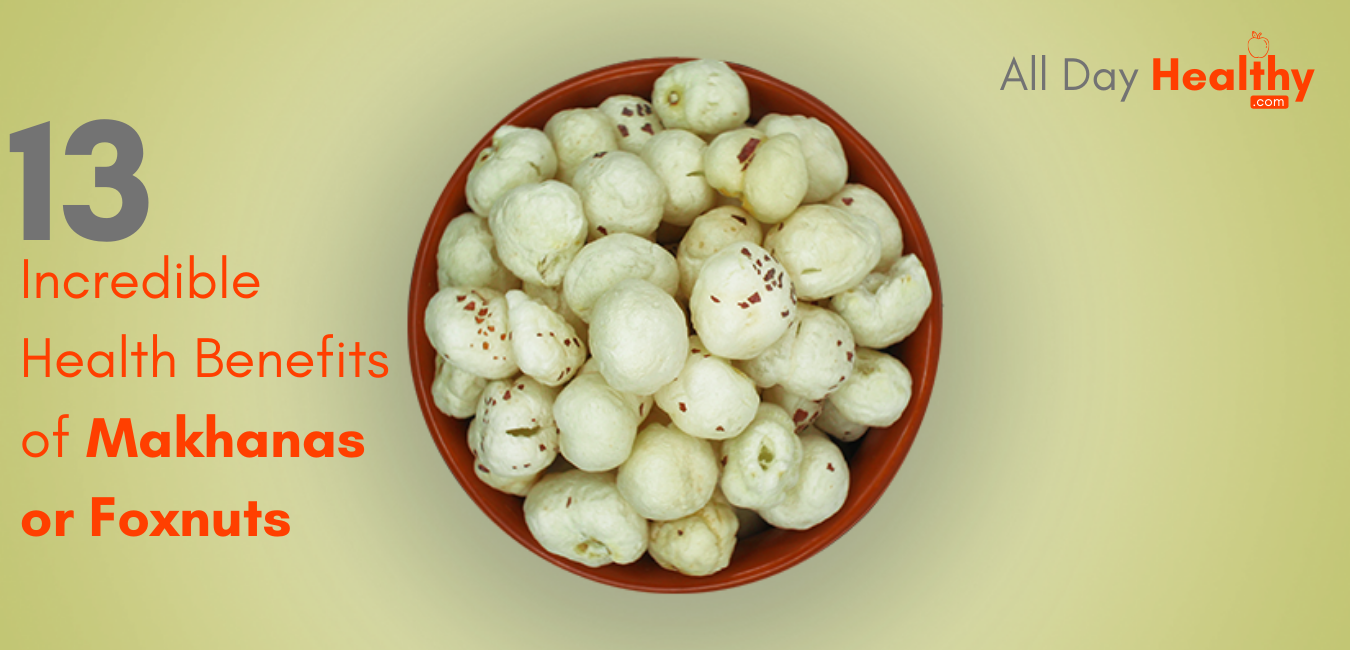Why Green Tea?
Green tea is the healthiest beverage on the planet. It is loaded with antioxidants and nutrients that have powerful effects on the body.These include improved brain function, fat loss, a lower risk of cancer and many other impressive benefits.
Green tea has been used as a medicine for thousands of years, originating in China but widely used throughout Asia, this beverage has a multitude of uses from lowering blood pressure to preventing cancer.
The reason that green tea has more health benefits attached to it than black tea is due to the processing. Black tea is processed in a way that allows for fermentation whereas green tea’s processing avoids the fermentation process. As a result, green tea retains the maximum amount of antioxidants and poly-phenol the substances that give green tea its many benefits.
What Are The 20+ Health Benefits of Green Tea that are supported by studies?

1. Green Tea Contains Bioactive Compounds That Improve Health
Many of the plant compounds in the tea leaves do make it into the final drink, which contains large amounts of important nutrients. Green tea is more than just liquid.
Tea is rich in polyphenols that have effects like reducing inflammation and helping to fight cancer.
Green tea is about 30 percent polyphenols by weight, including large amounts of a catechin called EGCG. Catechins are natural antioxidants that help prevent cell damage and provide other benefits.
These substances can reduce the formation of free radicals in the body, protecting cells and molecules from damage. These free radicals are known to play a role in aging and all sorts of diseases.
EGCG (Epigallocatechin Gallate) is one of the most powerful compounds in green tea. It has been studied to treat various diseases and may be one of the main reasons green tea has such powerful medicinal properties.
Green tea also has small amounts of minerals that are important for health.
Try to choose a higher quality brand of green tea, because some of the lower quality brands can contain excessive amounts of fluoride.
That being said, even if you choose a lower quality brand, the benefits still far outweigh any risk.
2. Compounds in Green Tea Can Improve Brain Function and Make You Smarter
Green tea does more than just keep you awake, it can also make you smarter.
The key active ingredient is caffeine, which is a known stimulant.
It doesn't contain as much as coffee, but enough to produce a response without causing the "jittery" effects associated with too much caffeine.
What caffeine does in the brain is to block an inhibitory neurotransmitter called Adenosine. This way, it actually increases the firing of neurons and the concentration of neurotransmitters like dopamine and nor-epinephrine.
Caffeine has been intensively studied before and consistently leads to improvements in various aspects of brain function, including improved mood, vigilance, reaction time and memory.
However, green tea contains more than just caffeine. It also has the amino acid L-theanine, which is able to cross the blood-brain barrier.
L-theanine increases the activity of the inhibitory neurotransmitter GABA, which has anti-anxiety effects. It also increases dopamine and the production of alpha waves in the brain.
Studies show that caffeine and L-theanine can have synergistic effects. The combination of the two is particularly potent at improving brain function.
Because of the L-theanine and the smaller dose of caffeine, green tea can give you a much milder and different kind of "buzz" than coffee.
Many people report having more stable energy and being much more productive when they drink green tea, compared to coffee.
3. Green Tea Increases Fat Burning and Improves Physical Performance
If you look at the ingredients list for any fat burning supplement, chances are that green tea will be on there.
This is because green tea has been shown to increase fat burning and boost the metabolic rate, in human controlled trials.
In one study in 10 healthy men, green tea increased energy expenditure by 4%.
Another study showed that fat oxidation was increased by 17%, indicating that green tea may selectively increase the burning of fat.
However, some studies on green tea don't show any increase in metabolism, so the effects may depend on the individual.
Caffeine itself has also been shown to improve physical performance by mobilizing fatty acids from the fat tissues and making them available for use as energy.
In two separate review studies, caffeine has been shown to increase physical performance by 11-12%, on average.
4. Antioxidants in Green Tea May Lower Your Risk of Some Types of Cancer
Cancer is caused by uncontrolled growth of cells. It is one of the world's leading causes of death.
It is known that oxidative damage contributes to the development of cancer and that antioxidants may have a protective effect
Green tea is an excellent source of powerful antioxidants, so it makes sense that it could reduce your risk of cancer, which it appears to do:
- Breast Cancer: A meta-analysis of observational studies found that women who drank the most green tea had a 20-30% lower risk of developing breast cancer, the most common cancer in women
- Prostate Cancer: One study found that men drinking green tea had a 48% lower risk of developing prostate cancer, which is the most common cancer in men
- Colo-Rectal Cancer: An analysis of 29 studies showed that those drinking green tea were up to 42% less likely to develop colorectal cancer.
- Pancreatic Cancer: Population research suggests that drinking green tea is linked to a reduced risk of pancreatic cancer.
- Mouth Cancer: Population research suggests that drinking green tea is linked with a reduced risk of developing mouth cancer. Also, early research suggests that taking green tea extract three times daily after meals for 12 weeks increases healing responses in people with mouth cancer.
- Liver Cancer: Population research suggests that drinking green tea is not linked to a reduced risk of liver cancer.
- and also many other known cancer
Many observational studies have shown that green tea drinkers are less likely to develop several types of cancer. However, more high-quality research is needed to confirm these effects.
It is important to keep in mind that it may be a bad idea to put milk in your tea, because some studies suggest it reduces the antioxidant value.
5. Green Tea May Protect Your Brain in Old Age, Lowering Your Risk of Alzheimer's and Parkinson's
Not only can green tea improve brain function in the short term, it may also protect your brain in old age.
Alzheimer's disease is the most common neurodegenerative disease in humans and a leading cause of dementia.
Parkinson's disease is the second most common neurodegenerative disease and involves the death of dopamine producing neurons in the brain.
Multiple studies show that the catechin compounds in green tea can have various protective effects on neurons in test tubes and animal models, potentially lowering the risk of Alzheimer's and Parkinson's.
6. Green Tea Can Kill Bacteria, Which Improves Dental Health and Lowers Your Risk of Infection
The catechins in green tea also have other biological effects.
Some studies show that they can kill bacteria and inhibit viruses like the influenza virus, potentially lowering your risk of infections.
Streptococcus mutants is the primary harmful bacteria in the mouth. It causes plaque formation and is a leading contributor to cavities and tooth decay.
Studies show that the catechins in green tea can inhibit the growth of Streptococcus mutants. Green tea consumption is associated with improved dental health and a lower risk of caries.
Multiple studies also show that green tea can reduce bad breath
7. Green Tea May Lower Your Risk of Type 2 Diabetes
Type 2 diabetes is a disease that has reached epidemic proportions in the past few decades and now afflicts about 400 million people worldwide.
This disease involves having elevated blood sugar levels in the context of insulin resistance or an inability to produce insulin.
Studies show that green tea can improve insulin sensitivity and reduce blood sugar levels.
One study in Japanese individuals found that those who drank the most green tea had a 42% lower risk of developing type 2 diabetes
According to a review of 7 studies with a total of 286,701 individuals, green tea drinkers had an 18% lower risk of becoming diabetic.
8. Green Tea May Reduce Your Risk of Cardiovascular Disease/Heart Disease
Cardiovascular diseases, including heart disease and stroke, are the biggest causes of death in the world
Studies show that green tea can improve some of the main risk factors for these diseases.
This includes total cholesterol, LDL cholesterol and triglycerides
Green tea also dramatically increases the antioxidant capacity of the blood, which protects the LDL particles from oxidation, which is one part of the pathway towards heart disease.
Given the beneficial effects on risk factors, it is not surprising to see that green tea drinkers have up to a 31% lower risk of cardiovascular disease
9. Green Tea Can Help You Lose Weight and Lower Your Risk of Obesity
Given that green tea can boost the metabolic rate in the short term, it makes sense that it could help you lose weight
Several studies show that green tea leads to decrease in the body fat, especially in the abdominal area.
One of these studies was a 12-week randomized controlled trial in 240 men and women. In this study, the green tea group had significant decreases in body fat percentage, body weight, waist circumference and belly fat.
However, some studies don't show a statistically significant increases in weight loss with green tea, so this needs to be taken with a grain of salt
10. Green Tea May Help You Live Longer
Of course, we all have to die eventually. That is inevitable.
However, given that green tea drinkers are at a lower risk of cardiovascular disease and cancer, it makes sense that it could help you live longer
In a study of 40,530 Japanese adults, those who drank the most green tea (5 or more cups a day) were significantly less likely to die during an 11 year period:
- Death of all causes: 23% lower in women, 12% lower in men.
- Death from heart disease: 31% lower in women, 22% lower in men.
- Death from stroke: 42% lower in women, 35% lower in men.
Another study in 14,001 elderly Japanese individuals aged found that those who drank the most green tea were 76% less likely to die during the 6 year study period.
11. Green Tea Helps In Preventing Cancer Problems
According to the National Cancer Institute, the polyphenols in tea have been shown to decrease tumor growth in laboratory and animal studies and may protect against damage caused by ultraviolet UVB radiation.
In countries where green tea consumption is high, cancer rates tend to be lower, but it is impossible to know for sure whether it is the green tea that prevents cancer in these particular populations or other lifestyle factors.
Some studies have also shown the positive impacts of green tea on the following types of cancer:
- breast
- bladder
- ovarian
- colorectal (bowel)
- esophageal (throat)
- lung
- prostate
- skin
- stomach
Researchers believe that it is the high level of polyphenols in tea that helps kill cancerous cells and stop them from growing. However, the exact mechanisms by which tea interacts with cancerous cells is unknown.
However, other studies have not found that tea can reduce cancer risk. The amount of tea required for cancer-preventive effects also varies widely in studies - from 2-10 cups per day.
In 2005, the Food and Drug Administration (FDA) stated, "there is no credible evidence to support qualified health claims for green tea consumption and a reduced risk of gastric, lung, colon/rectal, esophageal, pancreatic, ovarian, and combined cancers."
12. Green Tea & Inflammatory Skin Diseases
A 2007 study concluded that green tea could hold promise as a
13. Helps Improvement of Dental Health
Some studies show that the catechins in green tea can kill bacteria and inhibit viruses like the influenza virus, potentially lowering your risk of infections.
One of the primary species of harmful bacteria in the mouth is Streptococcus mutans. It causes plaque formation and is a leading contributor to cavities and tooth decay. Studies show that the catechins in tea can inhibit the growth of Streptococcus mutans.
In general, green tea consumption is associated with improved dental health and a lower risk of dental caries.
On top of that, another benefit of green tea is that it can reduce bad breath.
14. Depression
Theanine is an amino acid naturally found in tea leaves. It is this substance that is thought to provide a relaxing and tranquilizing effect and be a great benefit to tea drinkers.
15. Helps To Get Out of Anti-Viral Infection & Anti Bacterial
Tea catechins are strong antibacterial and antiviral agents which make them effective for treating everything from influenza to cancer. In some studies green tea has been shown to inhibit the spread of many diseases.
16. Improve Brain Function And Mental Performance
While the stimulants in tea can keep you awake, they can also make your brain function better. The main stimulant, caffeine, is present in tea at enough of a dose to provide a lift for most people without causing the increased anxiety and “jitters” associated with too much coffee.
In the brain, the main method of action of caffeine is to block adenosine receptors, allowing neurons to fire for longer, increasing brain activity. Studies have shown caffeine improves concentration and memory.
Additionally, the amino aide L-theanine has a relaxing effect while simultaneously increasing alertness, which, in combination with caffeine, can increase brain function and help you be more productive.
17. Boost Your Physical Performance
Green tea health benefits also seem to include boosting physical performance, increasing exercise endurance, and decreasing reaction time, and there are many, many such studies showing these effects from caffeine, although other ingredients in green tea may aid this effect. Caffeine, and green tea’s, ability to mobilize fatty acids in fat tissue to make them more easily available for use as energy also seems to aid physical performance. In one study, caffeine was shown to significantly increase physical performance (exercise endurance and exertion). The antioxidants in green tea may also help prevent tissue damage during physical exertion as well.
18. Improves Bone Mineral Density
There is some data to suggest drinking green tea may make your bones stronger. This may be because it is alkaline-forming in your body, helping prevent the leaching of minerals from your bones to counteract blood acidity and maintain proper blood pH.
19. Keeps Your Body Hydrated
Tea doesn’t dehydrate. Even though it is a commonly-held belief that anything with caffeine is dehydrating, this is false.
Yes, caffeine is a diuretic, but water is also a diuretic. The volume of water of a cup of tea overcomes any dehydrating effect from the caffeine in the tea.
In fact, it would take an excessive amount of caffeine in a drink to dehydrate. The amount of water in tea, and even coffee, makes these drinks hydrating; substantiating this point, tests have shown that tea is not significantly different than water in the maintenance of hydration.
So why not have a cup of tea: a terrifically hydrating drink of water with healthy compounds mixed in to boot?
20. Improve Your Mood And Help You Relax
The amino acid L-theanine in green tea increases the activity of the inhibitory neurotransmitter GABA, which has anti-anxiety effects. L-theanine also increases dopamine and the production of alpha waves in the brain, aiding relaxation, decreasing stress, and helping reduce depression.
21. Ameliorate The Symptoms Of Arthritis
Another green tea health benefit: some of the compounds in green tea are anti-inflammatory, and there is evidence to suggest their anti-inflammatory effects can improve the symptoms of arthritis.
22. Pneumonia
Population research suggests that Japanese women who drink green tea have a lower risk of death from pneumonia compared to those who don't drink green tea.
Precautions & Warnings:
Children: Green tea is POSSIBLY SAFE for children when used in amounts commonly found in foods and beverages or when used for gargling three times daily for up to 90 days.
Pregnancy and Breast-Feeding: If you are pregnant or breast-feeding, green tea in small amounts - about 2 cups per day - is POSSIBLY SAFE. This amount of green tea provides about 200 mg of caffeine. However, drinking more than 2 cups of green tea per day is POSSIBLY UNSAFE. Consuming more than 2 cups of green tea daily has been linked to an increased risk of miscarriage and other negative effects due to the caffeine content. Also, green tea might increase the risk of birth defects associated with folic acid deficiency. In women who are nursing, caffeine passes into breast milk and can affect a nursing infant. Don't drink an excessive amount of green tea if you are pregnant or breast-feeding.
"Tired blood" (anemia): Drinking green tea may make anemia worse.
Anxiety disorders: The caffeine in green tea might make anxiety worse.
Bleeding disorders: Caffeine in green tea might increase the risk of bleeding. Don't drink green tea if you have a bleeding disorder.
Heart conditions: Caffeine in green tea might cause irregular heartbeat.
Diabetes: Caffeine in green tea might affect blood sugar control. If you drink green tea and have diabetes, monitor your blood sugar carefully.
Diarrhea: Green tea contains caffeine. The caffeine in green tea, especially when taken in large amounts, can worsen diarrhea.
Glaucoma: Drinking green tea increases pressure inside the eye. The increase occurs within 30 minutes and lasts for at least 90 minutes.
High blood pressure: The caffeine in green tea might increase blood pressure in people with high blood pressure. However, this does not seem to occur in people who regularly drink green tea or other products that contain caffeine.
Irritable bowel syndrome (IBS): Green tea contains caffeine. The caffeine in green tea, especially when taken in large amounts, can worsen diarrhea and might worsen symptoms of IBS.
Liver disease: Green tea extract supplements have been linked to several cases of liver damage. Green tea extracts might make liver disease worse.
Weak bones (osteoporosis): Drinking green tea can increase the amount of calcium that is flushed out in the urine. Caffeine should be limited to less than 300 mg per day (approximately 2-3 cups of green tea). It is possible to make up for some calcium loss caused by caffeine by taking calcium supplements.
WHAT OTHER NAMES IS GREEN TEA KNOWN BY?
Benifuuki, Camellia sinensis, Camellia thea, Camellia theifera, Constituant Polyphénolique de Thé Vert, CPTV, EGCG, Epigallo Catechin Gallate, Épigallo-Catéchine Gallate, Epigallocatechin Gallate, Extrait de Camellia Sinensis, Extrait de Thé, Extrait de Thé Vert, Extrait de Thea Sinensis, Green Sencha Tea, Green Tea Extract, Green Tea Polyphenolic Fraction, GTP, GTPF, Japanese Sencha Green Tea, Japanese Tea, Kunecatechins, Poly E, Polyphenon E, PTV, Té Verde, Tea, Tea Extract, Tea Green, Thé, Thé de Camillia, Thé Japonais, Thé Vert, Thé Vert de Yame, Thé Vert Sensha, Thea bohea, Thea sinensis, Thea viridis, Yame Green Tea, Yabukita, Yame Tea.
WHAT IS GREEN TEA?
Green tea is made from the Camellia sinensis plant. The dried leaves and leaf buds of Camellia sinensis are used to produce various types of teas. Green tea is prepared by steaming and pan-frying these leaves and then drying them. Other teas such as black tea and oolong tea involve processes in which the leaves are fermented (black tea) or partially fermented (oolong tea).
Green tea is taken by mouth to improve mental alertness and thinking.
It is also taken by mouth for depression, non-alcoholic fatty liver disease (NAFLD), inflammatory bowel disease (ulcerative colitis or Crohn's disease), weight loss and to treat stomach disorders, vomiting, diarrhea, headaches, and bone loss (osteoporosis).
Some people take green tea by mouth to prevent various cancers, including breast cancer, prostate cancer, colon cancer, gastric cancer, lung cancer, liver cancer, solid tumor cancers, leukemia, and skin cancer related to exposure to sunlight. Some women use green tea to fight human papilloma virus (HPV), which can cause genital warts, the growth of abnormal cells in the cervix (cervical dyslexia), and cervical cancer.
Green tea is also taken by mouth for Parkinson's disease, diseases of the heart and blood vessels, diabetes, low blood pressure, chronic fatigue syndrome (CFS), dental cavities, kidney stones, and skin damage.
Instead of drinking green tea, some people apply green tea bags to their skin to soothe sunburn and prevent skin cancer due to sun exposure. Green tea bags are also used to decrease puffiness under the eyes, as a compress for tired eyes or headache, and to stop gums from bleeding after a tooth is pulled. A green tea footpath is used for athlete's foot.
Some people gargle with green tea to prevent colds and flu. Green tea extract is also used in mouthwash to reduce pain after tooth removal. Green tea in candy is used for gum disease.
Green tea is used in an ointment for genital warts.
HOW DOES IT WORKS?
The useful parts of green tea are the leaf bud, leaf, and stem. Green tea is not fermented and is produced by steaming fresh leaves at high temperatures. During this process, it is able to maintain important molecules called polyphenols, which seem to be responsible for many of the benefits of green tea.
Polyphenols might be able to prevent inflammation and swelling, protect cartilage between the bones, and lessen joint degeneration. They also seem to be able to fight human papilloma virus (HPV) infections and reduce the growth of abnormal cells in the cervix (cervical dysplasia). Research cannot yet explain how this works.
Green tea contains 2% to 4% caffeine, which affects thinking and alertness, increases urine output, and may improve the function of brain messengers important in Parkinson's disease. Caffeine is thought to stimulate the nervous system, heart, and muscles by increasing the release of certain chemicals in the brain called "neurotransmitters."
Antioxidants and other substances in green tea might help protect the heart and blood vessels.
In food, people drink green tea as a beverage
If you'd like to try it, there's a wide variety of products available on Amazon
Click Here To Explore More varieties of 100% Organic & Natural Green Tea Powder or Teabags & Buy from Amazon.in






